Gordon Henry Jr. is Anishinaabe and an enrolled member of the White Earth Chippewa Tribe of Minnesota. At MSU, Henry served as the Inaugural Audrey and John Leslie Endowed Chair in North American Indian and Indigenous Literary Studies as well as a professor in the Department of English in the College of Arts and Letters. A published fiction writer and poet, Henry was also the director of creative writing in the American Indian and Indigenous Studies program and the senior editor of the American Indian Studies Series at MSU Press. His book, the "Light People" (1994) was awarded The American Book Award in 1995. He has also co-authored the textbook "The Ojibway" (2004), to which he contributed essays on North American Indigenous culture.
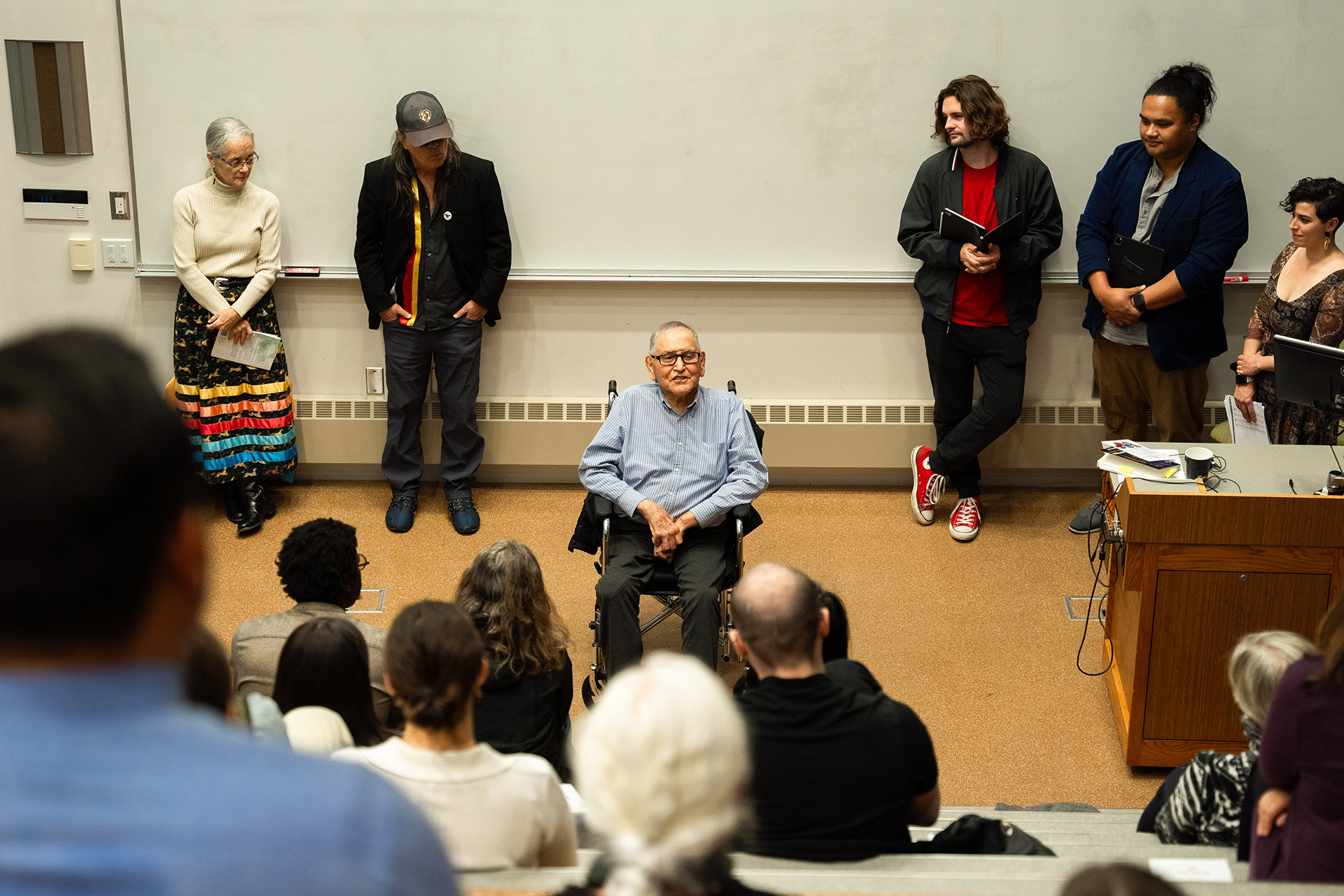
Glenn Wasicuna (center), a Dakota elder and language professor at Minnesota State University welcomes guests to a special reading event featuring Indigenous poetry in recognition of Gordon Henry Jr. Photo by Blake Matthews
On Nov. 9, Wells Hall resonated with the celebration of North American Indigenous literature and Henry’s legacy. With friends, family, faculty, staff and students in attendance, the gathering began with a prayer song by Glenn Wasicuna, a Dakota language instructor at Sisseton Wahpeton College and Minnesota State University. Additional music during the event featured graduate student Taylor Elyse Mills, along with a quartet from the College of Music.
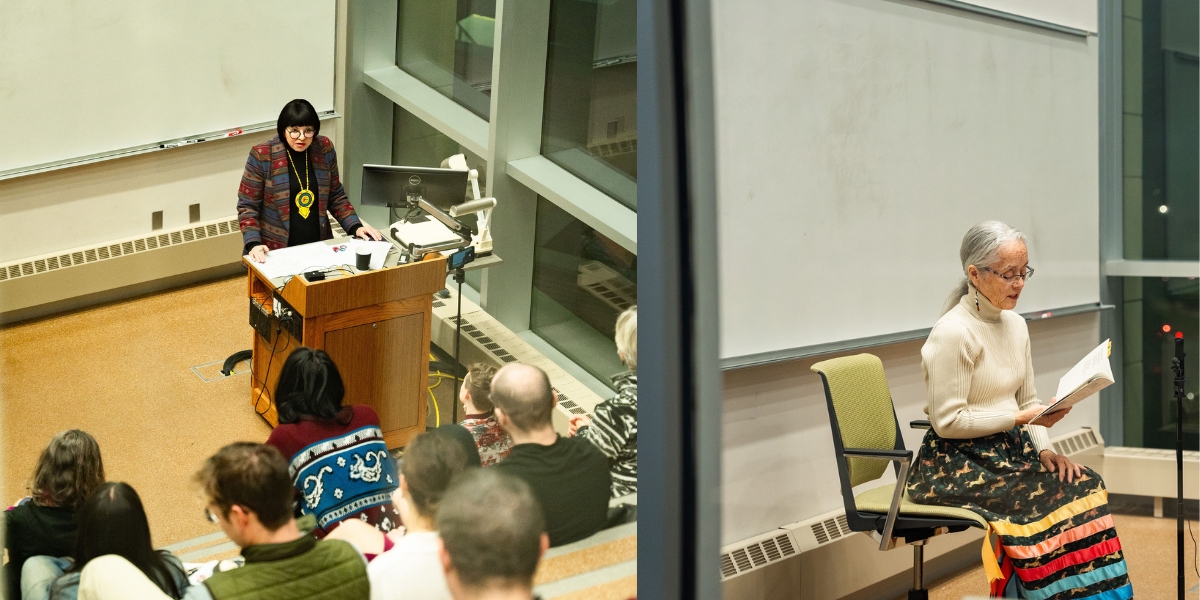
LeAnne Howe (left) and Gwen Westerman presenting song and readings. Photo by Blake Matthews
As the event progressed, Henry introduced LeAnne Howe, the Eidson Distinguished Professor of American Literature at the University of Georgia. Howe shared an opening song before reading from her forthcoming novel, “1918 Union Valley Road,” set during the 1918 flu pandemic in Oklahoma. Later, another guest and supporter, Gwen Westerman, a visual artist and professor in English literature, read from her recent poem collection titled “Blood Deep,” which draws from her grandmother’s untold stories.
The event continued with Henry reading from his story, “The Silver Saxophone, Masks of Pain and the People in the Hills.” Despite retiring, Henry will continue to work collaboratively with tribal communities in Michigan and beyond.
“I will be affiliated with MSU as an emeritus faculty and through future work with tribal communities in Michigan and beyond,” said Henry. “I will also take on additional positions in American Indian and Indigenous studies programs at other universities in the United States and Europe.”
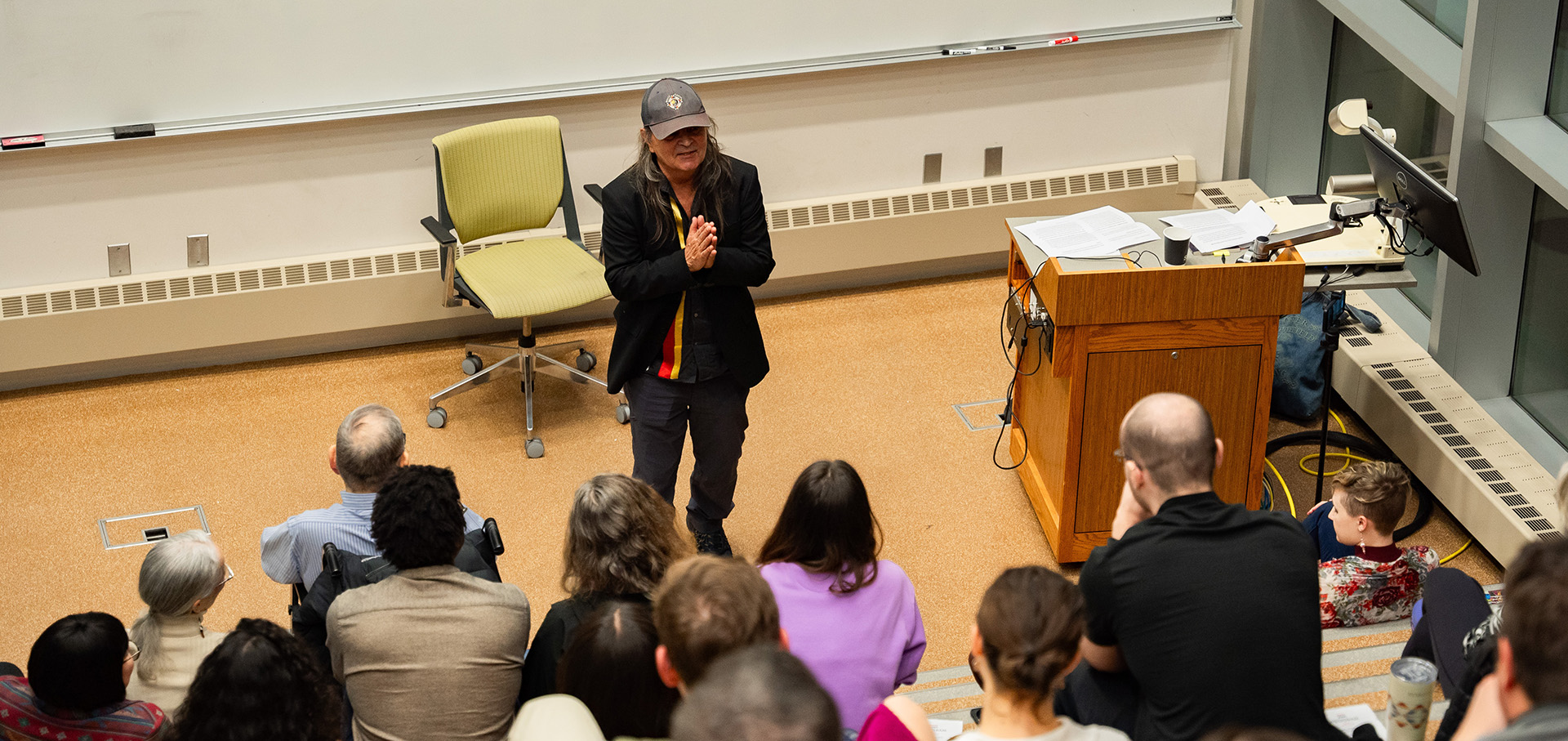
Gordon Henry Jr. offers remarks to attendees. Photo by Blake Matthews
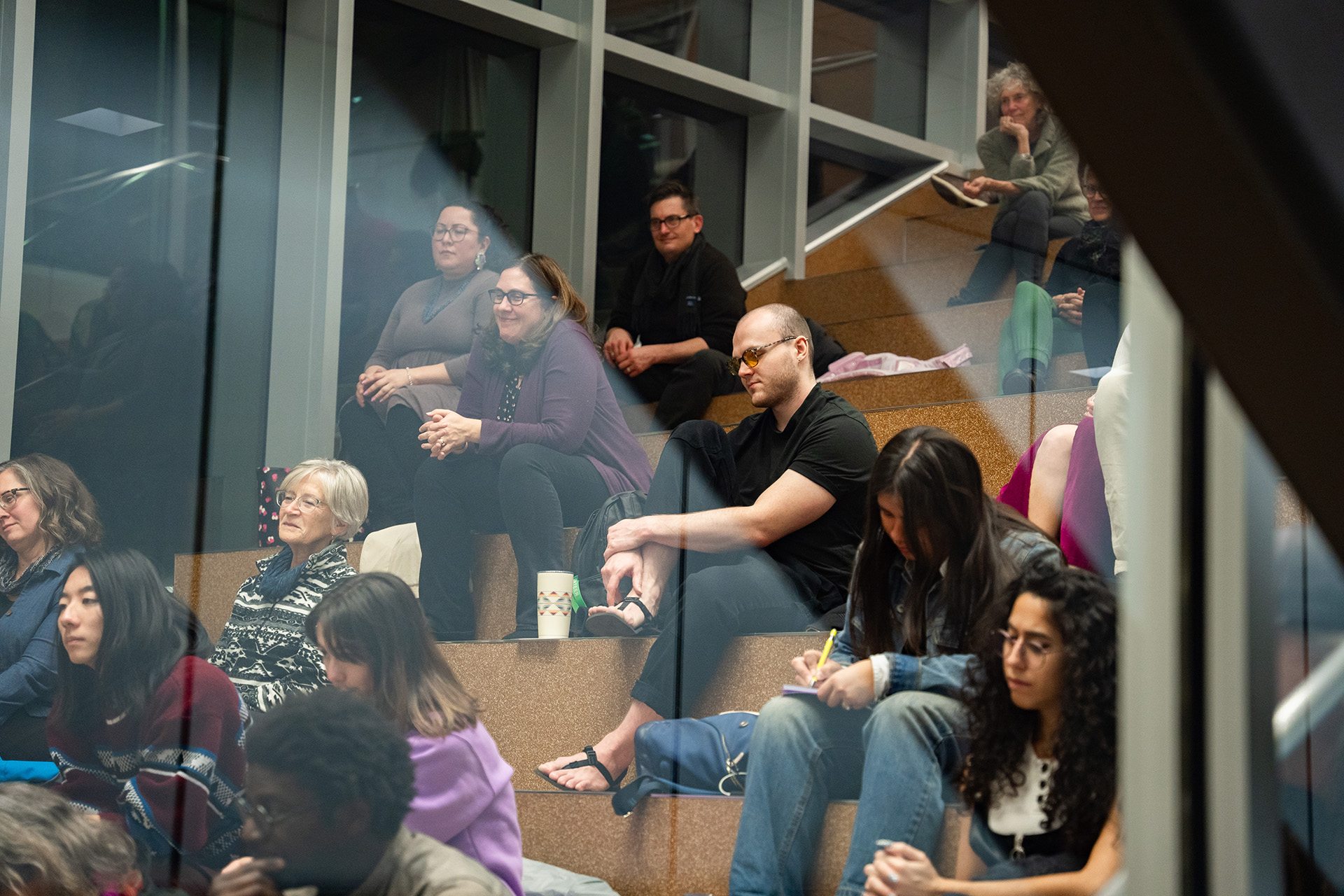
Attendees listen to the poetry readings in the Wells Hall atrium. Photo by Blake Matthews
The event also included a traditional blanketing ceremony to honor and highlight Henry’s contributions to the university, which was led by MSU representatives Emily Sorroche, associate director of the College of Agriculture and Natural Resources Office of Diversity, Equity and Inclusion; Kevin Leonard, interim director of the Native American Institute in the Office of University Outreach and Engagement; and Kristin Arola, Gillmor Endowed Professor in Professional and Public Writing and interim chair of American Indian and Indigenous Studies.
“Gordon is a well-respected community member, and his legacy and impact will continue to shape future generations of Spartans,” said Leonard. “It was a great honor and fitting ceremony to recognize him through the power of poetry this Native American Heritage Month.”
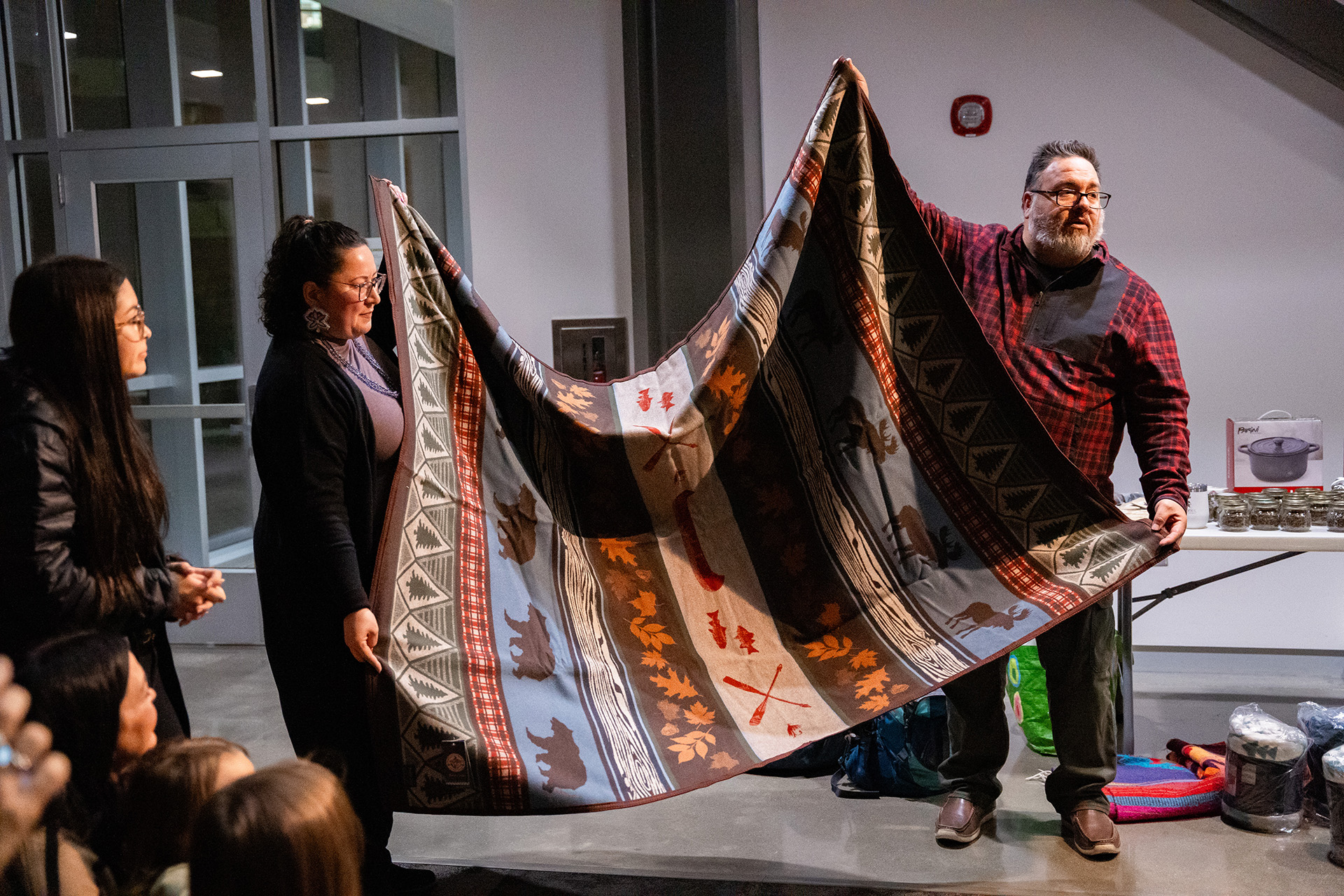
Emily Sorroche and Kevin Leonard unfurling and presenting a blanket to Gordon Henry Jr. A blanketing ceremony is an Indigenous tradition that shows respect for the recipient for making an important contribution to the community. Photo by Blake Matthews
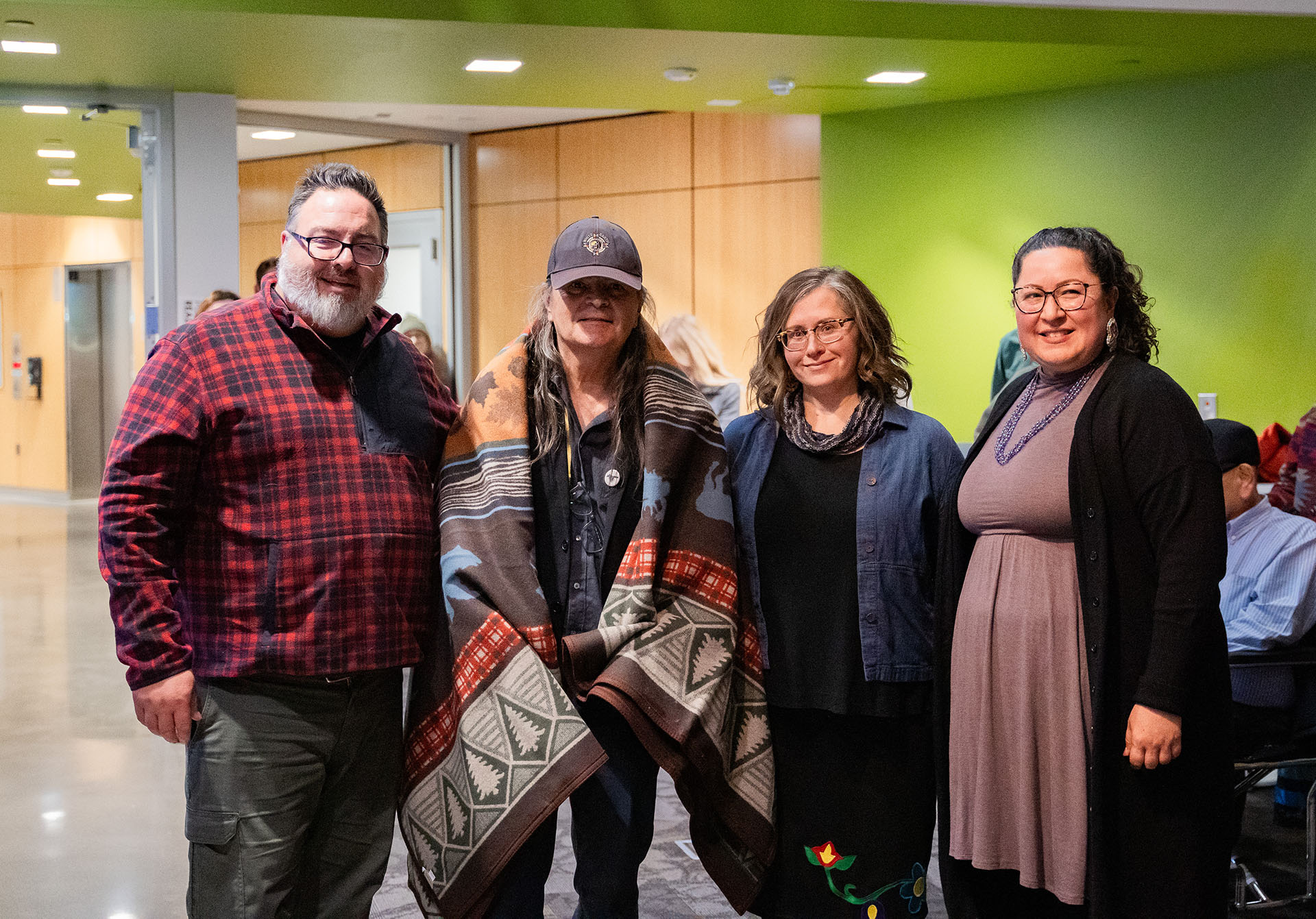
From left to right, Kevin Leonard, Gordon Henry Jr., Kristin Arola and Emily Sorroche. Photo by Blake Matthews
To support American Indian and Indigenous Studies programming at MSU and within the local community, visit givingto.msu.edu.